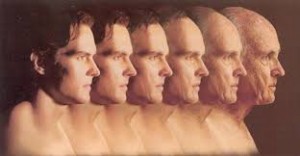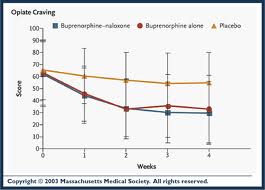This article is about overcoming grief after a loss. During the Covid epidemic many people died, which caused a lot of grief among their loved ones. Unresolved grief can cause anxiety and depression. Whenever you have lost a loved one, counseling can help you to continue the grieving process.
Claire Bidwell Smith is an author of several books and has a master’s degree of clinical psychology from Antioch University in Los Angeles. She published the book “Anxiety-the missing stage of grief” (Hachette Books, 2018). In it she explores the stages of grief and notices that anxiety is very much part of the grieving process. However, this point is often overlooked by mainstream psychologists. Claire Bidwell Smith offers strategies to deal with the loss of a loved one and overcome the anxieties that people often feel as well. Here is a write-up from CNN where Claire Bidwell Smith was interviewed.
Anxiety is a powerful emotion
Anxiety can be very powerful, but it is often mistaken for a physical problem. As a result, people present at the emergency room of a hospital for various symptoms of pain and a myriad of other complaints. After expensive tests the doctor finds no physical abnormality and the diagnosis is anxiety or panic attack. Smith said that 70% of her referrals went to the hospital first and were diagnosed as panic attacks. Patients have a hard time to understand that their anxiety is a direct result of their grieving process.
Relationship between grief and anxiety
CNN asked Smith how grief and anxiety are related. She answered that a sudden death from an infection like Covid makes you realize that we are not safe and are not in control. Everything in your life changes and emotional upheaval is much bigger than ever imagined. Grief, which consists of emotions that accompany a loss of life can force you to kneel down emotionally speaking. This process feeds anxiety. People who grieve the loss of a loved one get anxious about their own health and about the safety of other loved ones. They may not even realize that what they are experiencing is anxiety or that this is related to the grieving process.
Anxiety
Anxiety is a condition that presents with fears and worries. This can present with many different body symptoms. The patient may experience chest pains and think it is a heart attack. But tests are normal and the physician calls it anxiety. Similarly, anxiety can present as stomach aches, headaches or insomnia.
What coping strategies are available?
There are many support groups to help people with anxiety; in addition, grief therapists can help with individual counseling. It may be difficult to motivate the patient to make use of these services. Since Covid you can have access to virtual anxiety support services. It is important that people seek counseling support, as otherwise they get stuck in their anger or guilt. Unfortunately, many people give up and end up in substance abuse. They develop relationship problems and get into trouble at work or in school. So, not seeking support only backfires. Get yourself on a waiting list for a counselor! Work through your grief and you will feel better.
What is your advice to people who resist a formal mental health treatment?
Smith mentioned that there are a lot of self-guided online courses. Also, reading books and articles about grieving are useful, because you get on with your grieving process. Social media is another source for information about the grieving process. It helps you to understand what other people with the same problem experienced and how they overcame it. Having said this, people can develop a full-blown anxiety disorder or clinical depression. In this case they require an assessment by a psychiatrist.
What is the role of meditation and mindfulness in healing anxiety?
Smith pointed out that when we grieve and when we are anxious, we spend time in the past or we worry about the future. Meditation and mindfulness bring our awareness to the present moment. Meditation helps us to focus on our own thoughts. It helps us also to detach from negative thoughts or irrational fears.
Imagination as another powerful tool
Smith explained as an example that she was not there when her mother died in the hospital. When she is overcome by negative emotions regarding this memory, she envisions herself crawling into the hospital bed with her dying mother, holding her and saying good bye to her. Smith admitted that it took her about 5 years before she was ready to do these imagination experiments. By using this imagining tool your present focus is on the now away from negative emotions of the past or fears what the future may hold.
Stories help to reduce grief
How we handled a painful story from the past determines how it influences our daily thinking. Often people do not know how to handle such a story and they tend to suppress it. But psychologists found that it is much healthier to deal with these stories and reframe them. When people find a way how to explore their story, they can reframe it and remove the negative feelings that had an association with it in the past. Healing comes from therapy, from counseling, online grief forums and support groups. There are also grief writing classes where you can rewrite your story experiencing how the past memories become less powerful and the future is brighter.
Stay connected with your lost loved one
It used to be taught that the best therapy would be to “letting go and moving on”. But now psychologists think it is better to move forward with the person you have lost. Specifically, what this means is that it is OK to have an inner talk with the person you lost. Smith added: “For example, pondering: What advice would my dad give me about this job offer? What would my mom think of my new boyfriend?”
The crux of grief work is making meaning out of loss
CNN asked Claire Bidwell Smith whether she quoted Hope Edelman who authored the book “The After Grief”. Hope Edelman said in this book that the “crux of grief work is making meaning out of loss”. Smith’s reply was that this stage develops naturally. But she cautioned that guilt, regret and anger are standing in the way of our ability to make meaning. They have to be dealt with first. This is why counseling, grief work and overcoming guilt and anger are so important.
Conclusion
When we lose a loved one or lose our job, we experience a grief reaction. There are powerful negative feelings like anger, guilt and other feelings that make it difficult to overcome our grief. Claire Bidwell Smith is an author of several books and has a master’s degree of clinical psychology from Antioch University in Los Angeles. She was interviewed by CNN regarding her work and her latest book “Anxiety-the missing stage of grief” (Hachette Books, 2018).
Anxiety is an important aspect of grieving
In the interview she explained that anxiety is an important aspect of grieving. But many people go to the emergency room of a hospital, because they think the symptoms, they feel are physical. It is the emergency physician who tells them after several tests that they have anxiety and they need to seek a counselor. After a few months of counseling grieving persons usually feel a lot better. They are now accepting what happened in the past and hope for a better future.








